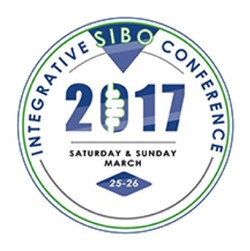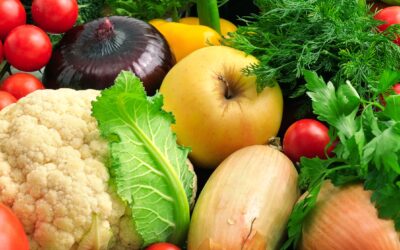The NUHS College of Postgraduate and Continuing Education hosted an Integrative SIBO Conference this weekend. After debating whether or not to “give up” my weekend, I decided on attending at the last minute, and I’m glad I did!
 Small intestinal bacterial overgrowth (SIBO) is a painful condition with symptoms of gas, bloating, indigestion, cramps, acid reflux, joint pain, fatigue, headaches, and more.
Small intestinal bacterial overgrowth (SIBO) is a painful condition with symptoms of gas, bloating, indigestion, cramps, acid reflux, joint pain, fatigue, headaches, and more.
First and foremost, in naturopathic medicine, we are determined to get to the root cause of an illness. Symptoms are important clues to investigate, but true remission will never be possible with only treating symptoms. Once the root causes are addressed, only then will the patient have good chances at remission. One of the presenters, Dr. Allison Siebecker, shared a list of common causes of SIBO:
- Deficient migrating motor complex (which is required to keep food moving swiftly throughout the gastrointestinal tract);
- Deficient hydrochloric acid production in the stomach (hydrochloric acid kills pathogens that enter the stomach before they move into the small intestine);
- Structural abnormalities – strictures/adhesions, improper closure of the ileocecal valve, inefficient pyloric sphincter.
Many things can be done using naturopathic medicine to address most of the causes of SIBO, and here are a few examples. To improve the migrating motor complex, intermittent fasting of at least 4 hours between meals is recommended, and some botanicals can enhance the activity as well. Hydrochloric acid can be increased by taking some apple cider vinegar before meals. Visceral adjustments may address some structural abnormalities, and some botanicals can be useful depending on the condition.
Next, eradicating the bacterial overgrowth is necessary by using botanical antibiotics or pharmaceutical antibiotics while at the same time changing the diet to prevent a relapse. There are several diets designed for SIBO, and as naturopathic doctors, we would figure out which one works best for the individual patient. Some of the many diets are the specific carbohydrate diet, low FODMAP diet (fermentable oligosaccharides, disaccharides, monosaccharides, and polyols), elemental diet, and SIBO specific food guide.
Please recognize that this brief overview is a tiny fraction of the 15+ hours of information presented, and there are many other aspects to successfully treating the condition! Also, SIBO tends to be persistent, so several courses of treatment are usually required, especially in cases that have lasted several years.




0 Comments